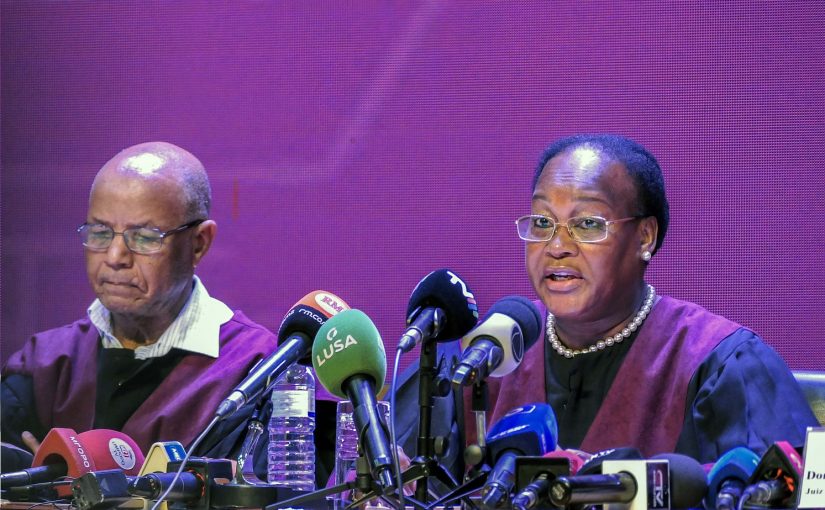Mozambique aims to cut illiteracy rate to 23% by 2029
Mozambique: Electoral governance fragile, needs in-depth analysis – counsellor judge

Photo: Lusa
Mozambique’s Constitutional Council (CC) on Friday pointed to the existence of a “fragility” in the country’s electoral administration, calling for “deep reflection” on the role of electoral bodies.
“The Constitutional Council believes that there is a need for in-depth reflection on the role of the electoral commissions and the technical secretariats for electoral administration, since the aforementioned dichotomy has demonstrated a fragility in the control of the electoral administration system,” said the president of the CC, Lúcia Ribeiro, during the reading of the ruling proclaiming the results of the local elections on 11 October.
The president of the Constitutional Council questioned the role of the district election commissions in the intermediate tabulation of the results of the local elections, since the law requires them to act through the technical secretariats for electoral administration.
“The role of the electoral commissions is being questioned here. Is it to be a simple assistant and then to sign the minutes and notices of the intermediate centralisation carried out by the STAE [Technical Secretariat for Electoral Administration]?” she asked.
The competition between the two electoral bodies in the exercise of the same functions, with the district commissions “overshadowed”, creates confusion and makes the electoral process more complex, the ruling states.
The CC also considers provincial electoral bodies irrelevant, because they are “couriers” for the work done at district level, which “jeopardises procedural speed and causes conflicts”.
“It is important to clarify the role of the various electoral bodies in the local elections, since the results of the local elections are known through the intermediate tabulation carried out by the district or city commissions,” said Lúcia Ribeiro.
On the other hand, she continued, it is necessary to harmonise and redefine the responsibilities of the National Electoral Commission (CNE) for the general tabulation of municipal elections, since this task is carried out in districts with municipalities and cities.
The CC also defends the need for reflection on the security system for electoral process materials, given reports of “the appearance of ballot papers, sometimes pre-voted, from entities outside the electoral administration staff”.
It also regrets the occurrence of cases of electoral violence in some municipalities, such as the one that resulted in the death of one person and the injury of another in the municipality of Chiúre, Cabo Delgado province, in the north of the country, calling on the relevant authorities to take appropriate and proportionate measures against unrest.
In the judgement, the CC argues that electoral offences should be handled and judged with the urgency and priority that governs the assessment and decision of electoral litigation.
“The repeated occurrence of these offences in each electoral period reflects, in the view of the Constitutional Council, a lack of civic education, which requires the committed co-operation of electoral administration bodies, political actors and society in general to overcome,” said Lúcia Ribeiro.
Despite the criticisms, the body considers that there is a growth in citizens’ democratic awareness, noted by the increase in the number of electoral appeals submitted to the district courts.
The Mozambican CC today proclaimed the ruling Front for the Liberation of Mozambique (Frelimo) the winner of the 11 October municipal elections in 56 municipalities, against the previous 64, with the Mozambican National Resistance (Renamo) winning four, and ordered repeat elections in four.
On 26 October, Mozambique’s National Electoral Commission (CNE), after carrying out the intermediate and general tabulation, announced Frelimo’s victory in 64 of the 65 municipalities that went to the polls.












Leave a Reply
Be the First to Comment!
You must be logged in to post a comment.
You must be logged in to post a comment.